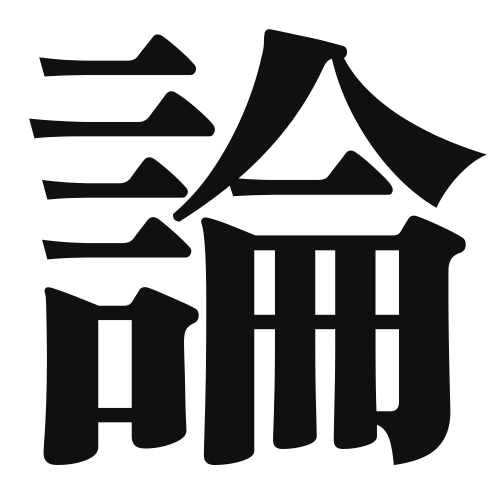1. Overview of Meaning
The kanji “論” (ron) generally means “argument,” “theory,” or “discussion.” It is often used in contexts related to reasoning, debate, and scholarly discourse.
2. Formation and Radicals
The kanji “論” is a compound character (会意文字) that combines two elements: the radical “言” (gen), which means “word” or “speech,” and the character “論” (ron), which relates to “to discuss” or “to reason.” This combination emphasizes the idea of discussing or reasoning through words.
The radical “言” is commonly associated with words, speech, and language, highlighting the communicative aspect of the kanji.
3. Examples of Usage
Common words and phrases that include “論” are:
- 論文 (ronbun) – thesis or dissertation
- 論争 (ronsou) – dispute or controversy
- 理論 (riron) – theory
Example sentences in daily conversation:
- この論文は非常に興味深いです。
(This thesis is very interesting.) - 彼らはその問題について論争しています。
(They are disputing about that issue.)
4. Synonyms and Antonyms
Similar kanji with related meanings include:
- 議 (gi) – meaning “discussion” or “deliberation,” often used in formal contexts.
- 考 (kou) – meaning “to think” or “to consider,” which emphasizes the process of thought rather than discussion.
Antonyms include:
- 無 (mu) – meaning “nothing” or “absence,” which contrasts with the idea of having a discussion or argument.
5. Cultural and Historical Background
The kanji “論” is deeply connected to Japanese culture, particularly in academic and philosophical contexts. It reflects the importance of discourse and debate in Japanese society.
Proverbs and idiomatic expressions that include “論” are:
- 論より証拠 (ron yori shouko) – “Evidence is more important than argument,” emphasizing the value of proof over mere discussion.
